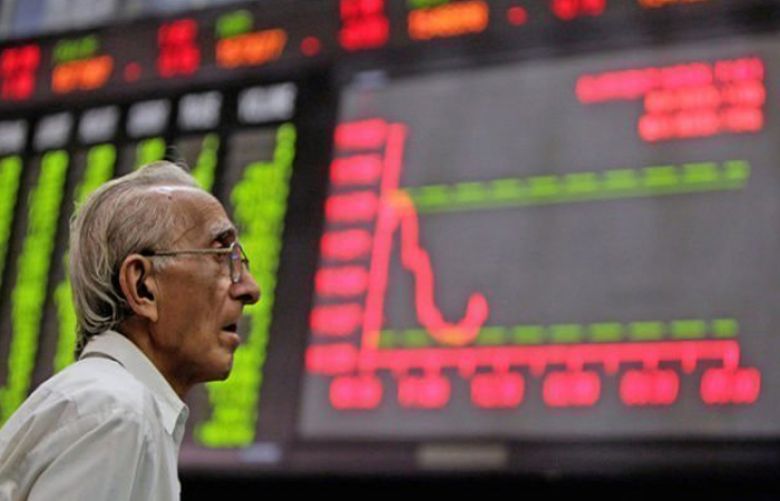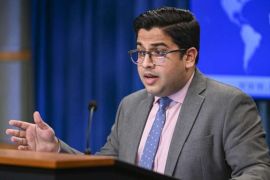The stocks plunged Monday during the intraday trade as the benchmark KSE-100 lost nearly 750 points after uncertainty surrounded Pakistan’s political arena.
Investors reacted with panic to the depreciating Pakistani rupee against the US dollar and political uncertainty in the wake of the preliminary results of the by-polls in Punjab.
At the beginning of the trade, the market started at 42,074 points, but later at 1:14pm, it plunged over 740 points and reached 41,329 points.
Not only did the stock market witness a major drop, but the Pakistani rupee also reached a new low against the US dollar — and is being sold at Rs215.25 in the interbank market.
Arif Habib Limited Head of Research Tahir Abbas told Geo.tv that “a lot of ifs and buts” have been created as the PTI has cracked more seats than the ruling PML-N in the Punjab Assembly by-polls.
“Following the results of the by-polls, there’s an uncertainty in the market on whether the federal coalition government will continue or will it announce snap polls.”
“If early elections are announced, then it would trigger uncertainty over the International Monetary Fund’s (IMF) curial programme as well,” he said, pointing out that although a staff-level agreement has been reached, the global lender's Executive Board is yet to give a green signal.
Abbas said that one of IMF’s pre-conditions was hiking the gas and electricity tariff, for which the federal cabinet is yet to give approval.
“Now that it (PML-N) has lost its heart — Punjab — it remains unclear what it is going to do next. If the federal cabinet does not approve the hike, then the IMF programme’s revival will remain in danger.”
Voicing the same concerns as Abbas, Alpha Beta Core CEO Khurram Schehzad said that with political uncertainty taking roots again, IMF programme may get impacted.
“Hopefully [...] clarity emerges soon before its late,” Schehzad said.







